Tag: liberty

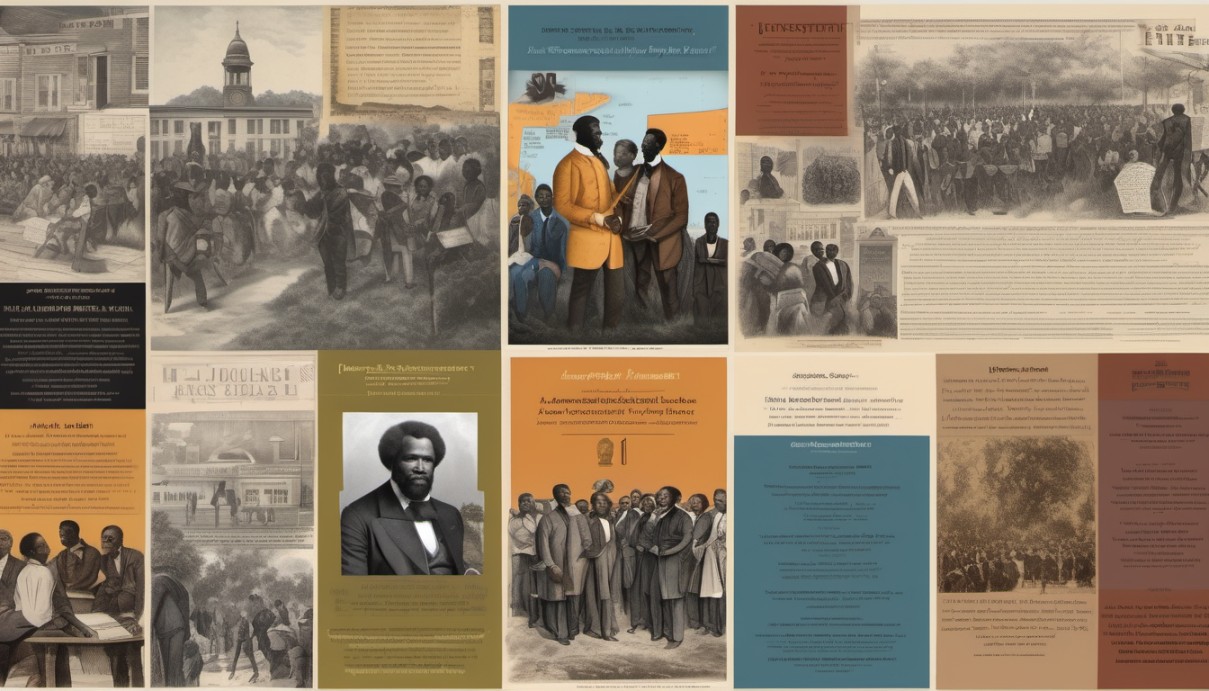
Juneteenth: 3 Lessons in Activism
June 19, 2024 | Post
Today we celebrate Juneteenth, honoring the official end of slavery in the U.S. and the ongoing fight for liberty and

Searching for the Heart of LibertyCon Europe: A Recap
May 9, 2024 | Post
From rooftop receptions to thought-provoking sessions at unique venues like a former Coca-Cola factory, every moment was inspiring at LibertyCon Europe 2024

My Experience with Campus Climate at a Liberal Arts College
April 12, 2024 | Post
I was a Bernie Sanders-style progressive when I arrived at my small liberal arts college. I quickly rose through the ranks of various leftist student groups. Then, one key event turned me around.

How and why the war on drugs has failed
March 21, 2024 | Post
In this article, we’ll dissect the failures of the war on drugs, seeking to uncover the factors that have led to its ultimate downfall, as well as diverse arguments for ending the war on drugs and embracing legalization.

Five people influenced by Ayn Rand
March 20, 2024 | Post
Ayn Rand has inspired countless readers from various walks of life, including some you might have heard of.
Many notable people from fields as diverse as comic books, rock music, activism, and business have credited her as a significant influence.
Let’s look at five such individuals…

Anthem: a gateway to the genius of Ayn Rand
March 14, 2024 | Post
Today, 86 years on from its original publication, Anthem stands firm as a testament to the enduring power of the human spirit and the eternal flame of individualism.
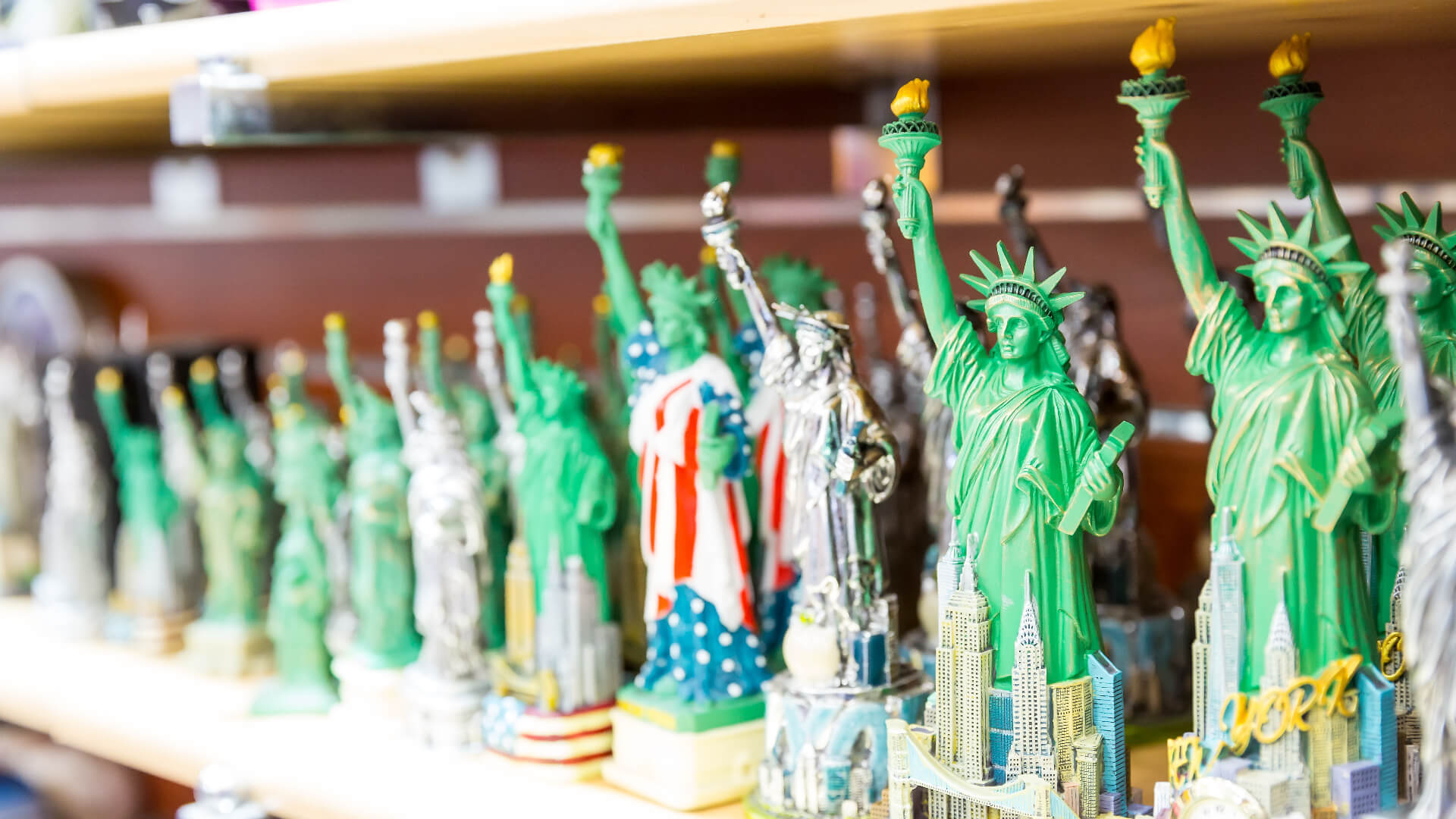
Liberalism as a product: how to convince others that freedom is good
February 21, 2024 | Post
Liberalism is a great product, but it often doesn’t sell very well, despite spearheading the astronomical leap in prosperity over the past 200 years.
So, what are liberals getting wrong and how can they sell freedom more effectively?
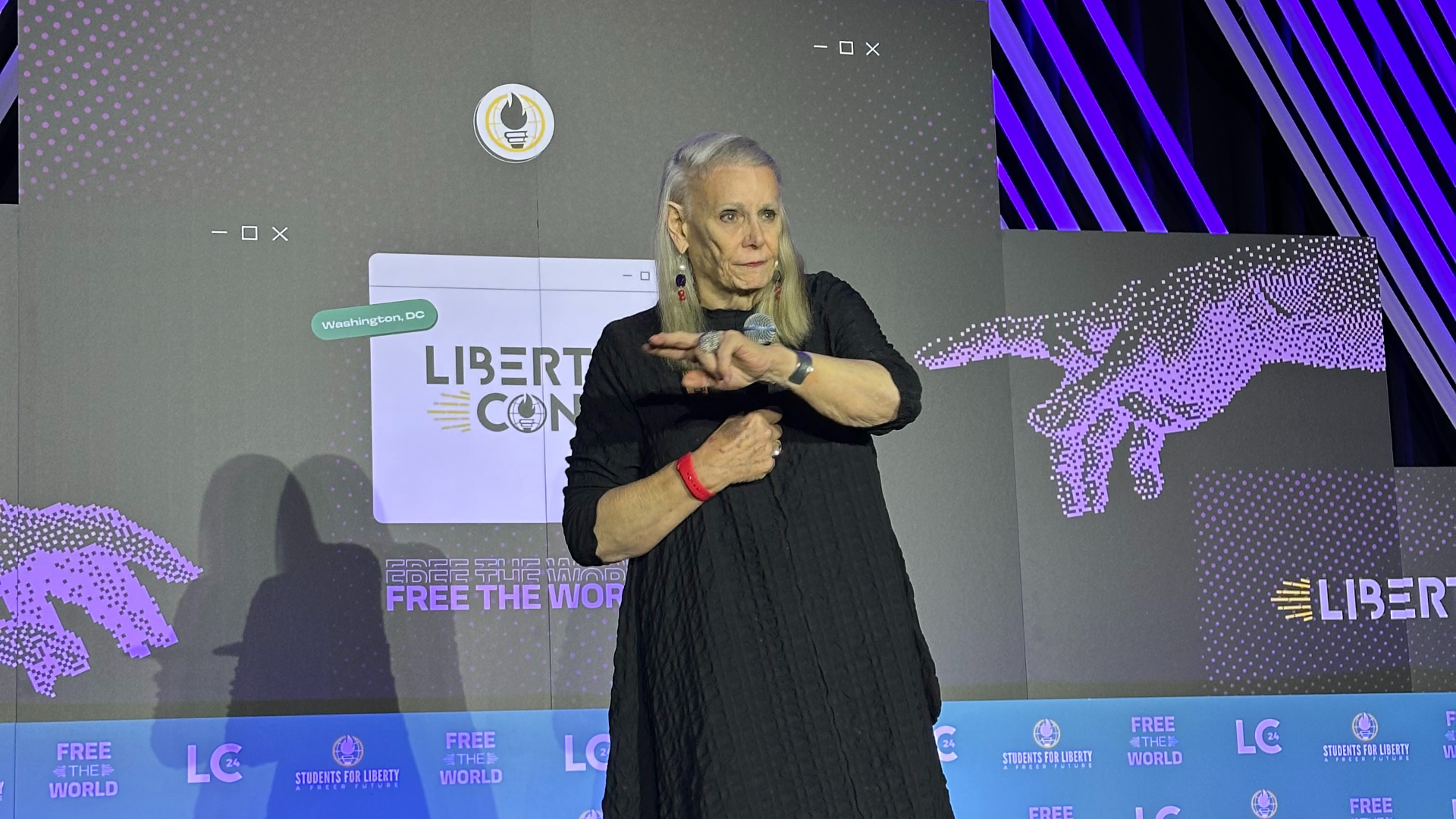
Deirdre McCloskey: ‘The pursuit of freedom has unleashed unprecedented innovation, prosperity, and social transformation’
February 21, 2024 | Post
Deirdre McCloskey, renowned economist and advocate for liberal values, delivered a stirring address at LibertyCon International, captivating attendees with her insights into the importance of liberty in fostering human flourishing and societal progress.
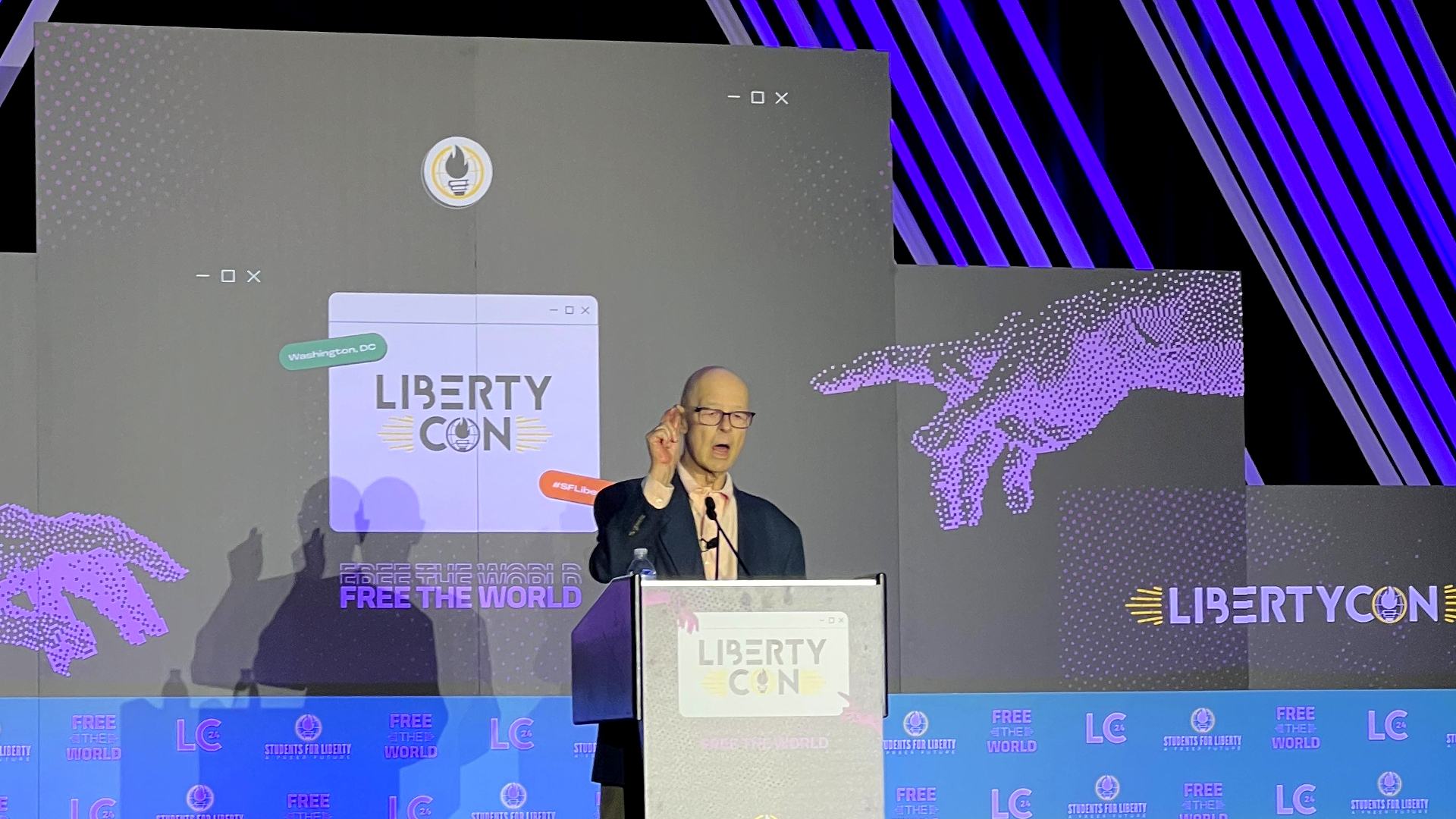
David Boaz: ‘Fight illiberalism and authoritarianism wherever you find it’
February 21, 2024 | Post
At LibertyCon International, David Boaz urged the liberty movement to “fight illiberalism and authoritarianism wherever you find it.”

Why our liberty hinges on the Rule of Law
February 16, 2024 | Post
The Rule of Law plays a pivotal role in enhancing individuals’ freedoms, as it dictates whether a country veers toward authoritarianism or freedom. But what do we understand as the Rule of Law?
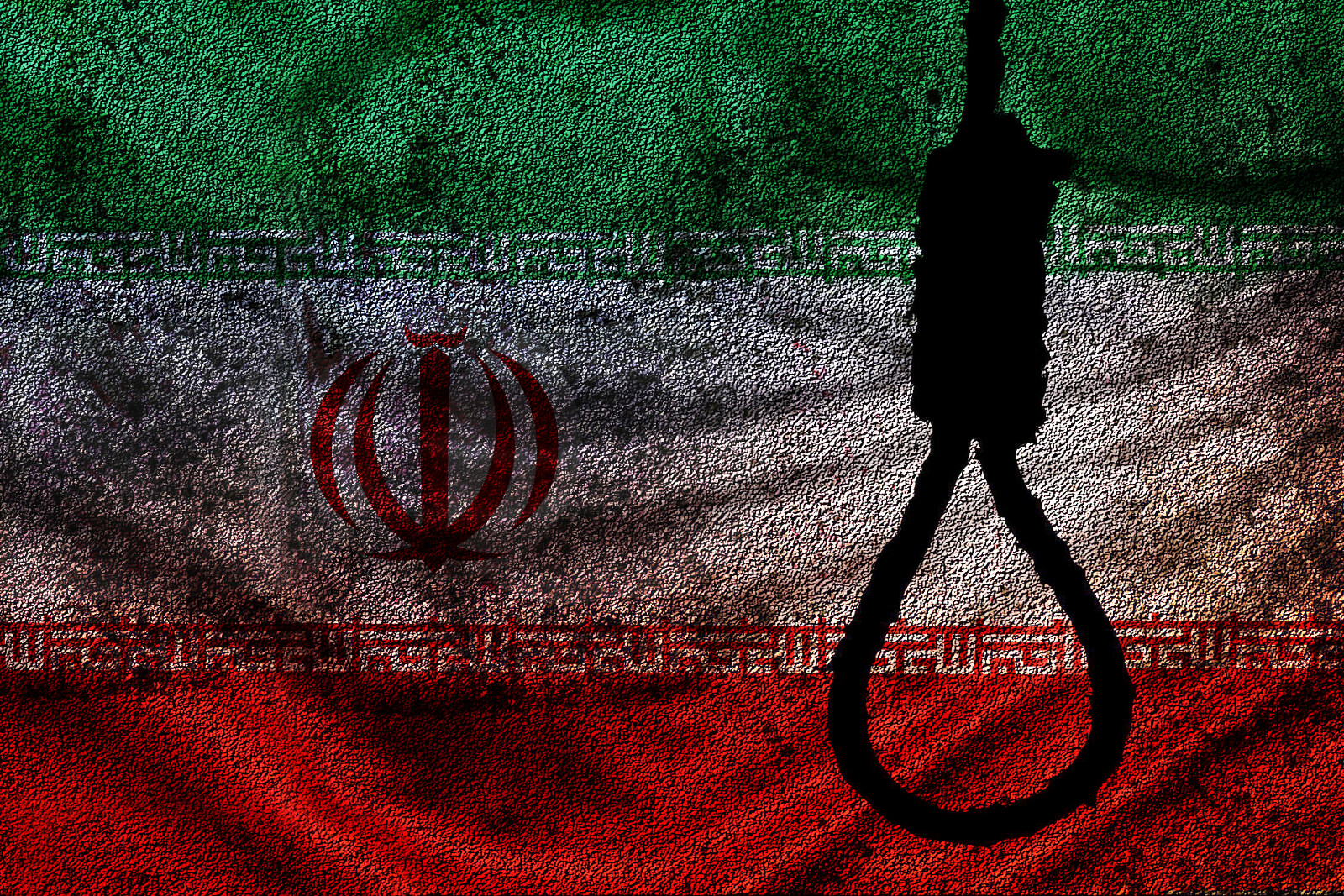
Mohammed Ghobadlou and Farhad Salimi: the tragedy of executed dissidents in Iran
February 8, 2024 | Post
Once again, on January 23, 2024, Iranian authorities executed two political dissidents, Mohammed Ghobadlou and Farhad Salimi, after unjust trials.
These latest tragedies shed light on the ongoing pattern concerning Iran’s use of the death penalty in persecuting both opponents of the regime and ethnic minorities.

The Soviet Union’s terrible legacy on democracy and minority rights
February 7, 2024 | Post
Since they first seized power, Soviet leaders have claimed their “democracy” to be the best in history. However, their understanding of democracy differs significantly from that of the United States and other Western nations.
This second piece of a series addressing myths about the Union of Soviet Socialist Republics (USSR) will focus on the country’s strange legacy on democracy and minority rights.

Tolerance means dealing with ideas without canceling or censoring
January 25, 2024 | Post
Society is always changing, and so are ideas.
One constant, however, is intolerance for different ideas. That intolerance has left its mark, often in blood, on human history. The current iteration of intolerance, though not quite bloody, is “cancel culture.”

Love your enemies: why human respect is the key to victory
January 24, 2024 | Post
When I was in college, my primary motivator for activism was anger. No, that doesn’t even accurately describe my mindset at the time. Fury would probably be the more correct term.
My strategy was simple; I enjoyed demonstrating the absurdity of their positions (can’t you see that all government action is theft and slavery!!!). When they disagreed, I would simply raise my volume and my indignation.
As the need for more indignant activism grew, so did my anger. But anger did more to destroy myself than to defeat my enemies.
Instead, there is a better way. One that enables the liberty movement to grow…
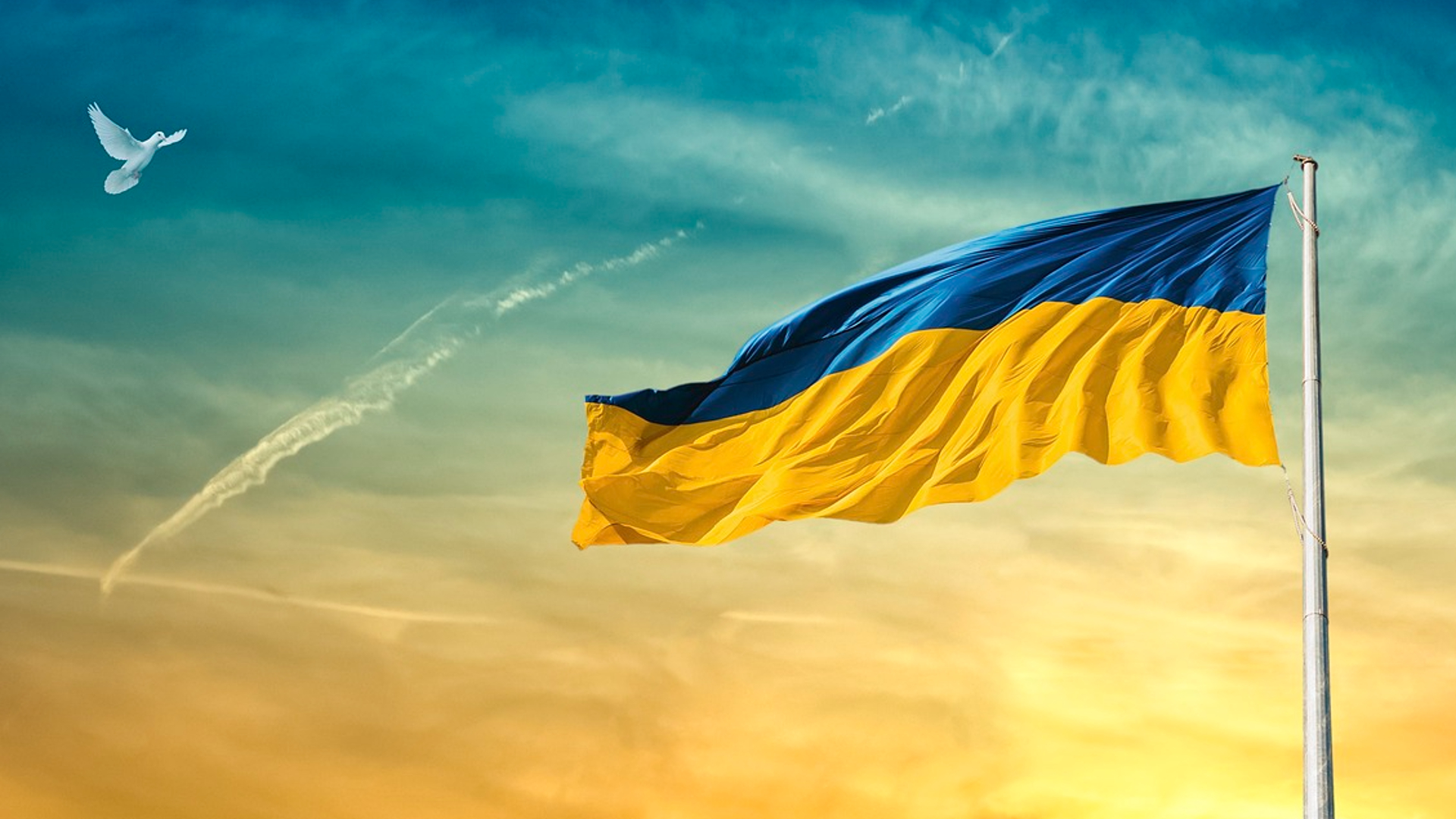
There is only one colonizer in Ukraine, and it isn’t the West
January 16, 2024 | Post
Amid the ongoing war in Ukraine, Vladimir Putin and the Russian state — along with many gullible voices in the West — assert that Ukraine is a victim of Western colonialism and expansionism.
Indeed, Putin’s narrative frames Russia’s invasion as a supposed liberation of Ukraine from nefarious external influences.
However, an examination of history reveals a starkly different truth — one deeply rooted in centuries of Russian colonialism and expansionism.

How Section 230 protects your online freedom
January 12, 2024 | Post
Section 230, part of the Telecommunications Decency Act of 1996, may sound like just any obscure piece of legislation, but it plays a crucial role in protecting your online freedom.
When Section 230 became law in 1996, it brought common sense to the table — content creators should be held responsible for their own words, not the platforms playing host.
However, in recent years, there has been significant pushback against Section 230 from figures across the political spectrum.

A new Vancouver development shows what’s possible when housing is deregulated
January 12, 2024 | Post
Sen̓áḵw is a $3-billion, 11-tower real estate development in Vancouver, set to be built on Squamish Nation reserve land. The project, named after the ancestral territory the Squamish people were removed from in 1913, is a sustainable village developed in partnership with Westbank.
The example set by the Sen̓áḵw development project shows us what we could have in other places too, if only the state — and the NIMBYs whose interests they serve — would step aside and let progress unfold.

The awkward and uncomfortable problem with national conservatism
January 11, 2024 | Post
The recent surge of national conservatism in the United States has not only highlighted a departure from classical liberal principles but also raised concerns about a fundamental shift away from the values that have long defined American governance.

Would a “national divorce” lead to more individual liberty?
January 9, 2024 | Post
As the United States finds itself in the throes of increasing political polarization, the idea of a “national divorce” has gained traction, particularly within the liberty movement.
Advocates argue that splitting the nation into independent states could enhance individual liberty, allowing citizens to align with governments that reflect their values.
However, opponents contend that such a move could lead to fragmented anti-liberty measures and weaken the nation’s collective defense of individual rights.
Let’s delve into the key arguments for and against national divorce, exploring whether such a division would truly be conducive to individual liberty.

How (true) liberalism made us rich
January 4, 2024 | Post
Today, a hot shower or a cup of coffee brewed in seconds are completely mundane. A journey across continents taking mere hours is, for many, just a normal part of life. Yet, these marvels would have been the envy of even the most affluent in medieval societies, prior to a period we can refer to as the “Great Enrichment.”

What makes Bitcoin such a revolutionary concept?
January 3, 2024 | Post
In the 15 years since the Genesis Block, the first set of 50 BTCs, was mined in January 2009, Bitcoin’s profile and impact on the global economy has increased exponentially. Hundreds of millions of people around the world have begun to recognize the merits of the truly revolutionary concept of a decentralized peer-to-peer currency.

The death penalty has no place in a civilized society
December 22, 2023 | Post
While the use of the death penalty by authoritarian regimes is not surprising, what can be said for its use in countries that claim to be free societies?
A tragic irony lies in the contradiction of a so-called free society embracing a barbaric practice that fundamentally defies the very essence of freedom — the state’s ability to make an irreversible decision on whether an individual should live or die.

Despite regulatory barriers, 3D-printed houses can revolutionize the construction industry
December 20, 2023 | Post
What if we could revolutionize transportation to make it not only faster but also more sustainable? What if we could create educational systems that are not only more accessible but also tailored to individual learning needs?
Or, how about building new homes in a matter of days, at a fraction of the cost?
ICON Technologies is able to do just that — if not for regulatory barriers.

How occupational licensing oppresses the poor
December 19, 2023 | Post
Imagine having to pay and jump through hoops for the government to allow you to work. That’s essentially how occupational licensing works.
Occupational licensing is a system that disproportionately burdens and oppresses the economically disadvantaged, hindering social mobility.

